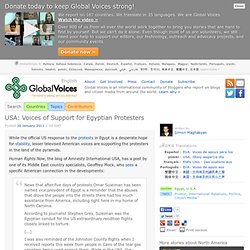

A tale of two protests. Cast your minds back to June 2009 and the aftermath of Iran's disputed presidential elections.

Months of unrest following the re-election of Mahmoud Ahmadinejad and severe crackdowns meted out by the state security apparatus captured the airwaves not only in the Middle East but across the globe. International news organisations devoted considerable time and energy to Iran's supposed "Green Revolution". Western governments, already ramping up pressure on the Iranian leadership over the latter's controversial nuclear programme, piped in with further vitriol against the Islamic Republic, condemning the leadership for its suppression of protesters.
Here is what the US president said back then: "I strongly condemn these unjust actions [by the Iranian state]" against the protesters. The US and the entire world are "appalled and outraged" by Iran's efforts to crush the opposition. What did the American authorities do in return? Selective hearing? Policy by ideology. USA: Voices of Support for Egyptian Protesters. While the official US response to the protests in Egypt is a desperate hope for stability, lesser televised American voices are supporting the protesters in the land of the pyramids.

Human Rights Now, the blog of Amnesty International USA, has a post by one of its Middle East country specialists, Geoffrey Mock, who sees a specific American connection in the developments: News that after five days of protests Omar Suleiman has been named vice president of Egypt is a reminder that the abuses that drove the people into the streets there had too much assistance from America, including right here in my home of North Carolina.According to journalist Stephen Grey, Suleiman was the Egyptian conduit for the US extraordinary rendition flights closely linked to torture.[...]I was also reminded of the Johnston County flights when I received reports this week from people in Cairo of the tear gas canisters being used against them.
A demonstration in Boston in support of Egyptian protests. Harvard Square is packed with young and old. Everyone is with. Arab Americans Rally at White House - Washington Wire. The U.S. needs to break with Mubarak now. ON FRIDAY, hundreds of thousands of Egyptians did something that the Obama administration, and many others in Washington, believed they would never do: They rose up against their government, demanding an end to President Hosni Mubarak's autocracy. They overwhelmed the security forces that Mr. Mubarak deployed in an attempt to crush them; they defied a nighttime curfew even after Army units were deployed. They burned the headquarters of the ruling party in Cairo and in several other cities. By nightfall, it seemed clear that only two events could end their revolution: a massive use of force by the Army or Mr. Mubarak's yielding of power.
The United States should be using all of its influence - including the more than $1 billion in aid it supplies annually to the Egyptian military - to ensure the latter outcome. But U.S. statements assumed that the 30-year-long rule of the 82-year-old Mr. In an address on Egyptian television early Saturday, Mr. Twitter Speaks Up for Free Speech: "The Tweets Must Flow"